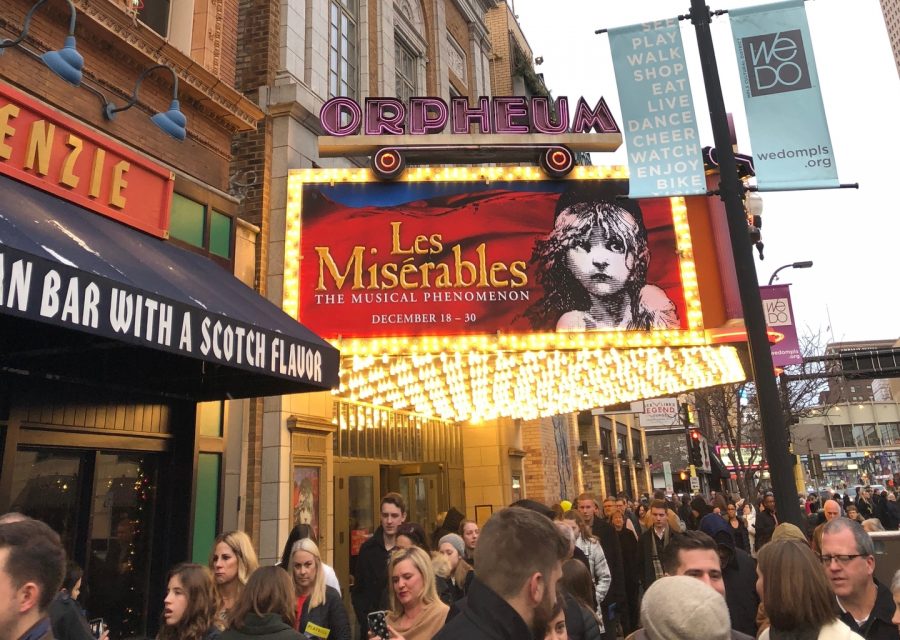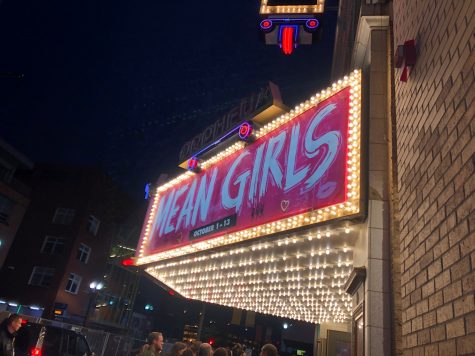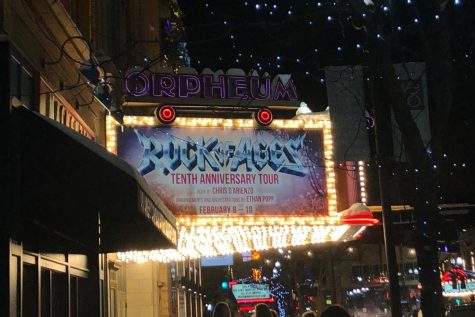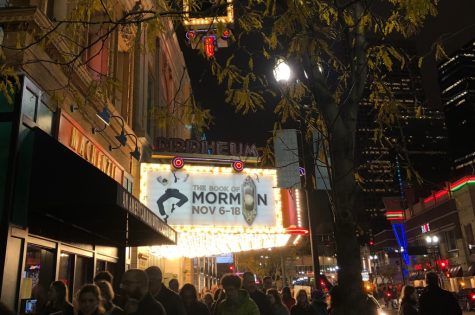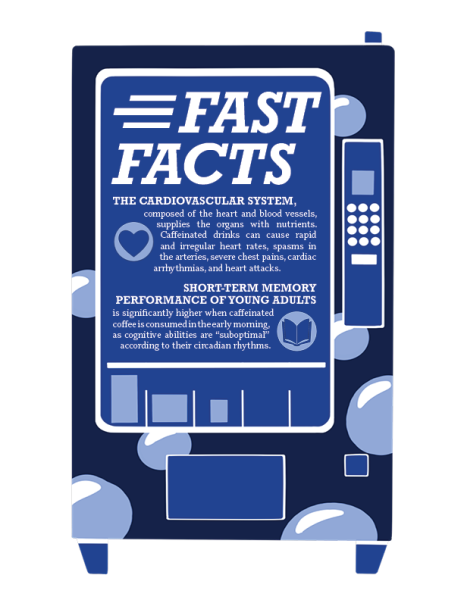‘Les Miserables’: A Mega-musical success story
January 1, 2019
The 1980s was a pivotal time period for musical theater in the United States. Until then, Broadway musicals had been a factor in the American entertainment industry, but it wasn’t until Andrew Lloyd Webber introduced Cats to Broadway in 1981 that the idea of mega-musicals landed. Mega-musicals changed theater history, debuting epics including ‘Miss Saigon,’ ‘Phantom of the Opera’ and ‘Les Miserables.’
Mega-musicals are large-scale shows featuring universal themes through impressive effects, sets, and overarching plots. Comparable to operas, mega-musicals focus on the physical aspects of the show rather than the plot, accompanied with sung-through musical scores. Along with impressive effects, these musicals are favorites of loyal fan bases and generate lofty revenue amounts as they rack up years and years on the Great White Way, to solidify their financial–but not necessarily—critical success.
‘Les Miserables’ is one of many mega-musicals that is not only an extreme financial success, but also a celebrated critical success. It originated on the stage in Paris in 1980, and is now the longest-running show in the West End and the second longest-running show on Broadway. With numerous awards, including three Tony Awards and two Drama Desk Awards, ‘Les Mis’ continues to attract audiences across the globe. The most recent U.S tour began in 2017 and closely follows the same design and technical elements of the 2014 Broadway revival. ‘Les Mis’ played at the Orpheum Theater in Minneapolis from Dec. 18 through Dec. 30.
Based on Victor Hugo’s novel and set in the early 19th century France, the nearly three-hour musical drama follows multiple characters over the course of several years, cast in relief against the severe poverty that launched the French Revolution. The main character is Jean Valjean (Nick Cartell) who strives to set his life back on track after being imprisoned for 19 years after stealing a loaf of bread. ‘Les Mis’ revolves around Valjean’s journey and how the people he meets ultimately alter the direction of his life, for better or worse. Cartell was stunning as Valjean, bringing intense emotion and vocal range to songs such as “Who Am I?” and “Bring Him Home.” Other notable characters include: the tragedy-ridden Fantine (Mary Kate Moore); the star-crossed lovers, scholarly Marius (Joshua Grosso) and sheltered Cosette (Jillian Butler); as well as the daring Eponine (Paige Smallwood); and relentless inspector Javert (Josh Davis).
Moore was heartbreaking as Fantine, whose character’s tragedies inspired Valjean to promise her that he would protect her daughter, then a Young Cosette (Cate Elefante). After Valjean rescues her abusive living situation, the older Cosette (Butler) falls deeply in love with Marius, a young French scholar whose steadfast ideals lead to his involvement in the revolution. Butler and Grosso’s voice paired well together for songs such as “A Heart Full of Love”, and Grosso brought well-balanced emotions to “Empty Chairs at Empty Tables.”
As the plot twists and turns, each of the character’s journeys through death-riddled battlegrounds to the depths of underground sewers, alters their relationships to Valjean, making for an entertaining show full of mystery and diverging conflicts. ‘Les Miserables’ is ultimately a musical about love, forgiveness, and resilience; all overlying, timeless themes that universal audience members can relate to.

